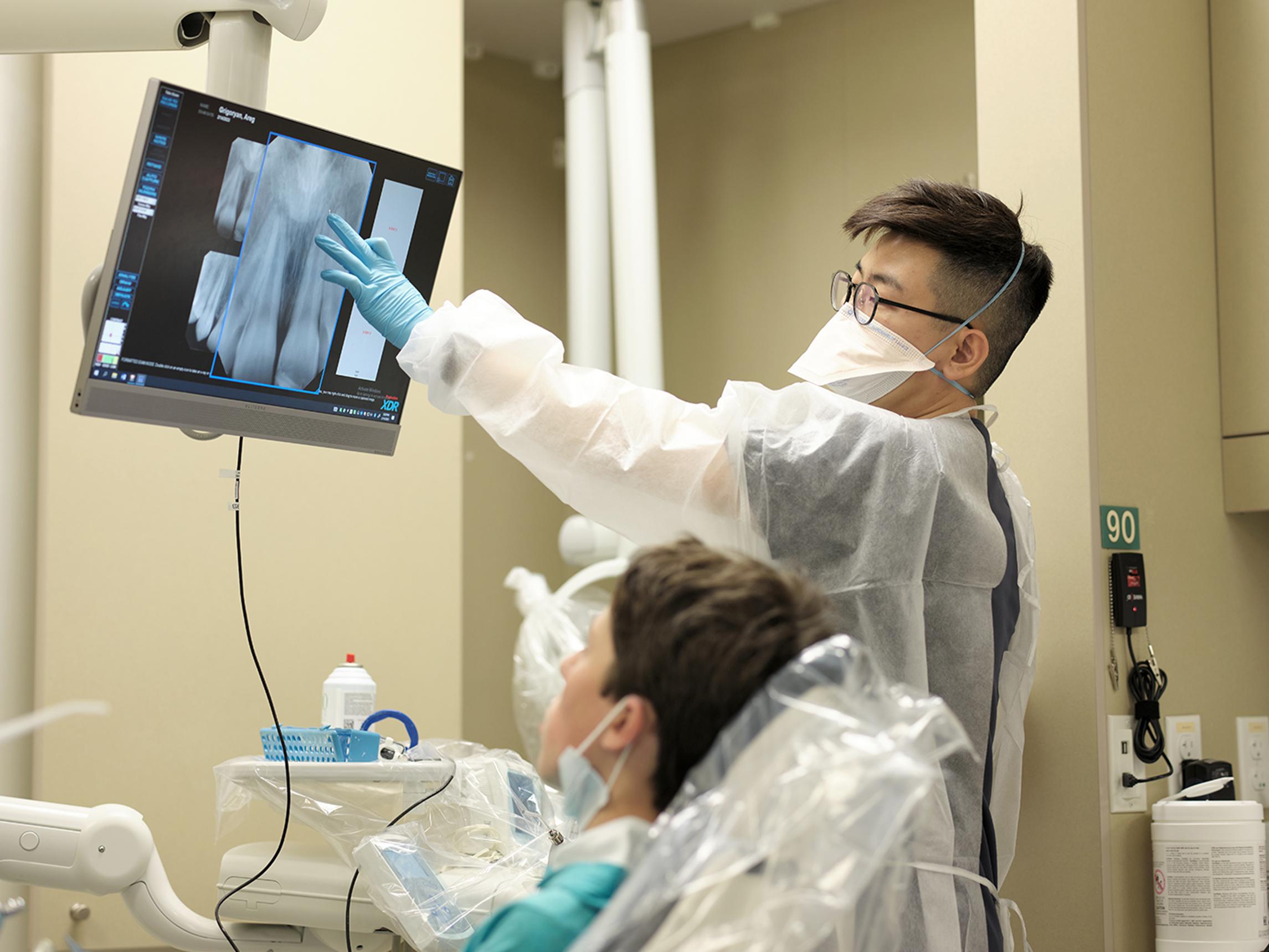Discover the Top Dentist Eugene Oregon Homeowners Count On for Exceptional Care
Discover the Top Dentist Eugene Oregon Homeowners Count On for Exceptional Care
Blog Article
Learn About Frequent Dental Problems Your Dental Professional Can Deal With
Recognizing frequent dental concerns is important for preserving optimal dental health. Problems such as tooth cavities, gum condition, tooth level of sensitivity, foul breath, and tooth degeneration prevail yet frequently neglected till they come to be serious. Dental experts have the know-how to detect and deal with these problems, consequently stopping further problems. Normal dental check outs and customized care plans can resolve these problems effectively, guaranteeing a healthier and brighter smile. What certain therapies do dental professionals employ to battle these issues, and how can early intervention make a distinction? The responses to these questions provide beneficial understandings into protecting your oral wellness.
Dental Caries
Tooth cavities, also called tooth decays, are a prevalent oral health concern brought on by the demineralization of tooth enamel due to acid manufacturing from bacterial plaque. This procedure begins when germs in the mouth metabolize sugars and starches from food, producing acids that erode the enamel. Otherwise attended to without delay, this erosion can penetrate deeper into the tooth, influencing the dentin and eventually the pulp, potentially resulting in serious pain and infection.
The beginning of cavity formation usually present as white places on the tooth surface, showing first demineralization. As the procedure progresses, these places can become black or brown lesions, symbolizing more substantial decay. Routine dental check-ups are crucial for early discovery, as cavities in their inceptive phases can be treated with remineralization techniques, such as fluoride treatments.
As soon as a dental caries has actually formed, corrective intervention is essential. Dental experts usually eliminate the corroded part of the tooth and load the dental caries with materials such as composite material, amalgam, or ceramic. In extra serious situations, a crown or root canal therapy may be required. Preventative actions, including good dental hygiene techniques and nutritional adjustments, play a pivotal duty in alleviating the risk of tooth cavities.
Gum Disease
While dental caries stand for a considerable problem for oral health, an additional vital issue that requires interest is periodontal illness. Likewise called gum disease, gum condition is an inflammatory condition affecting the tissues bordering and sustaining the teeth. It is mostly triggered by the buildup of plaque-- a sticky film of germs that bases on teeth.
Gum disease advances through stages, beginning with gingivitis, defined by soreness, swelling, and hemorrhaging gum tissues (dentist in eugene oregon). If left untreated, gingivitis can escalate to periodontitis, where the inner layer of the gum and bone draw away from the teeth, developing pockets that come to be contaminated. Gradually, the toxins produced by the germs break down the bone and connective cells that hold teeth in position, possibly causing tooth loss
Very early discovery and treatment are crucial. Expert dental cleansings and enhanced oral health techniques, such as cleaning two times day-to-day and flossing, can manage gingivitis. For advanced stages, therapies may include scaling and root planing, prescription antibiotics, and even surgical treatments.
Regular oral check-ups play a critical role in taking care of and stopping periodontal condition. Dental practitioners can recognize very early indicators and suggest suitable interventions, making sure the maintenance of healthy gum tissues and general oral wellness.
Tooth Sensitivity
Tooth sensitivity impacts numerous individuals worldwide, providing a common yet often traumatic oral problem. This problem emerges when the enamel, the outer protective layer of the teeth, is compromised, revealing the underlying dentin. The dentin includes tiny tubules that lead straight to the oral pulp, where nerves reside. When subjected to stimuli such as warm, chilly, pleasant, or acidic materials, these nerves are caused, creating sharp pain or discomfort.
Several aspects add to enamel erosion and succeeding tooth level of sensitivity, including aggressive cleaning, acidic foods and beverages, gum tissue economic downturn, and bruxism (teeth grinding) Additionally, oral procedures such as teeth bleaching can momentarily increase sensitivity.
Halitosis
One more prevalent oral concern that influences individuals' everyday lives is bad breath, medically described bad breath. Halitosis commonly originates from poor oral health, which permits food particles to remain in the mouth, fostering microbial growth.

Suggestions might include improving dental health methods, such as regular brushing and flossing, using antibacterial mouth washes, staying hydrated, and attending to any kind of oral problems. Reliable management of halitosis not only improves dental health however likewise considerably boosts top look what i found quality of life.
Tooth Degeneration

Avoiding dental cavity includes a mix of good dental hygiene methods and regular dental examinations. Cleaning teeth at the very least two times daily with fluoride tooth paste, flossing to eliminate plaque in between teeth, and restricting the intake of sugary foods and beverages are essential safety nets. Fluoride treatments, oral sealants, and expert cleansings offered by a dental expert can likewise play a Web Site substantial role in strengthening enamel and avoiding degeneration.
Dental experts can eliminate decayed tissue and restore the tooth with fillings made from products such as composite resin, amalgam, or porcelain. By dealing with tooth degeneration promptly, dental professionals aid maintain oral framework and function, ensuring long-term dental health.
Final Thought
Attending to common oral issues such as tooth cavities, periodontal disease, tooth sensitivity, bad breath, and tooth degeneration is crucial for maintaining optimum dental health and wellness and general well-being. Dental practitioners possess the proficiency to detect and treat these concerns efficiently, making certain tailored look after each person. Routine preventive steps and oral examinations are important in identifying and managing these issues early, advertising a healthier and more positive smile over a life time.

Tooth degeneration, also understood as oral caries, happens when the enamel, the outer layer of the tooth, is eroded by acids produced by germs in the mouth. Brushing teeth at least twice daily with fluoride toothpaste, flossing to remove plaque in between teeth, and restricting the intake of sweet foods and drinks are essential preventive actions.Dealing with typical dental worries such as tooth cavities, gum disease, tooth sensitivity, negative breath, and tooth degeneration is important for keeping optimum dental health and wellness and general health.
Report this page